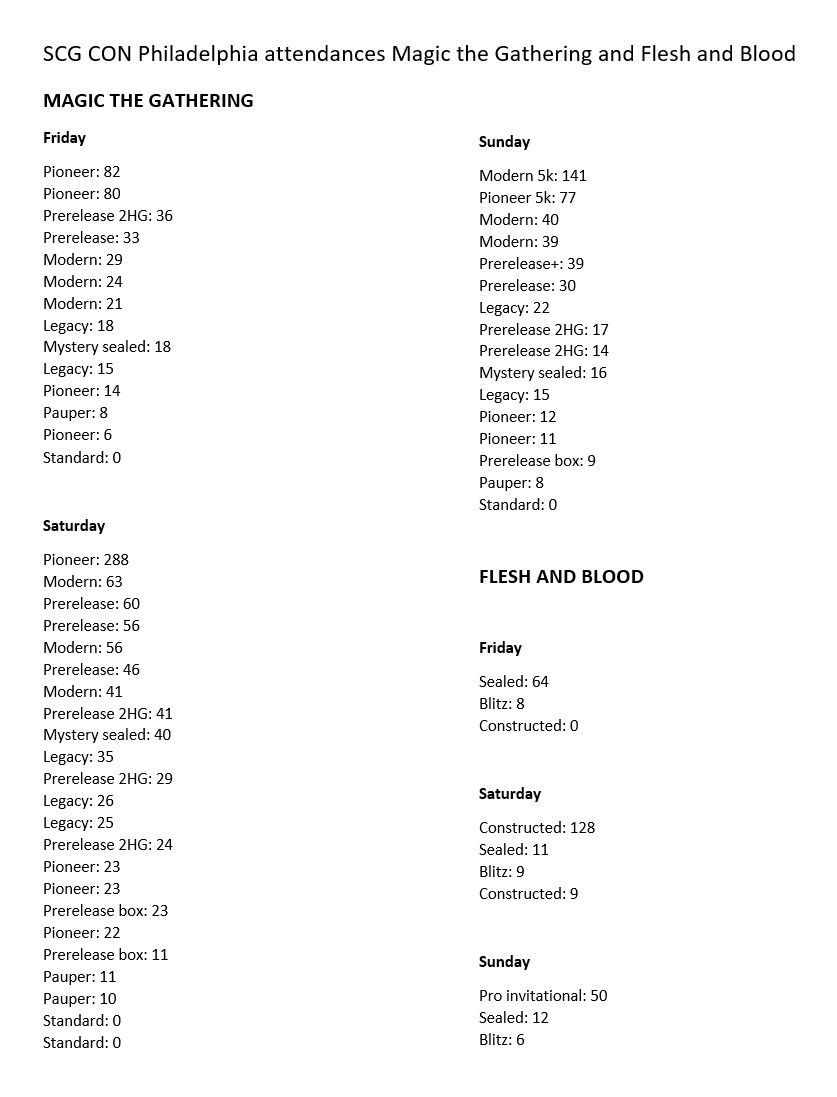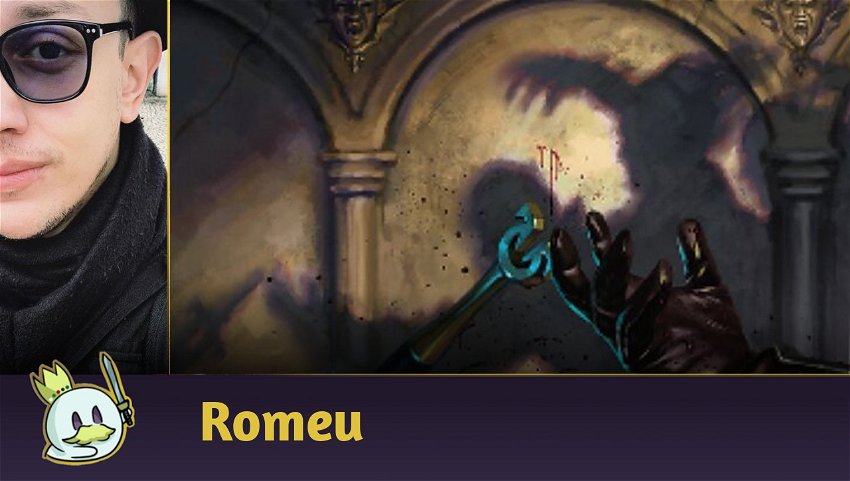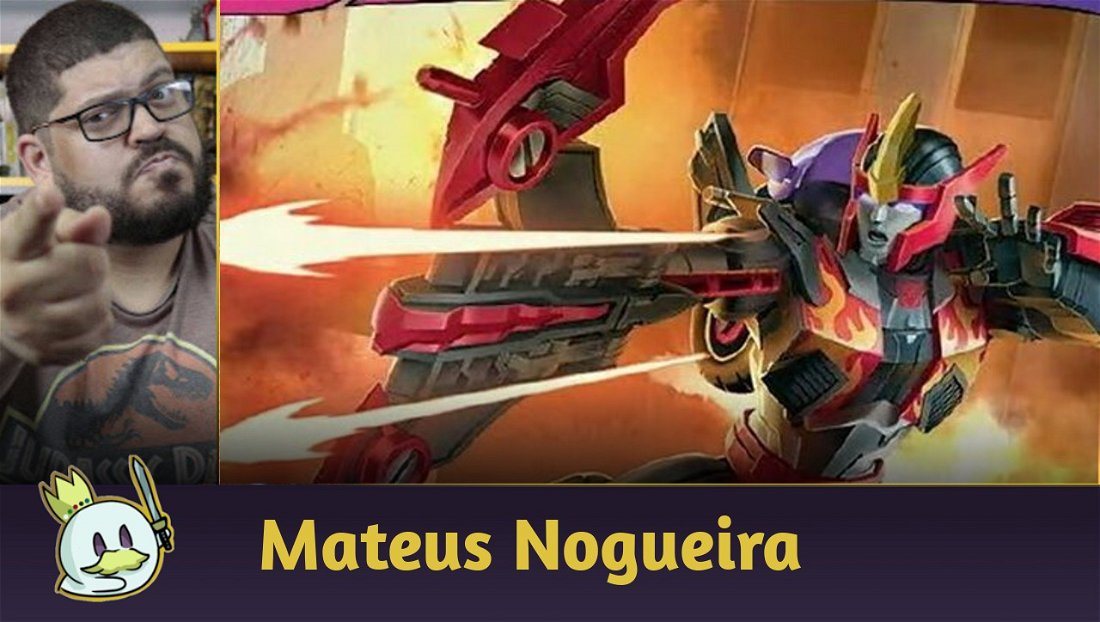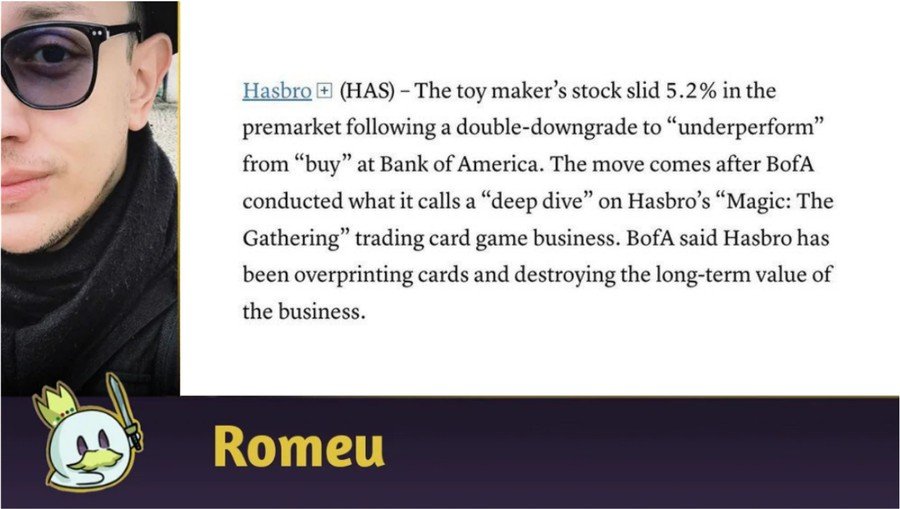A few days ago, Aaron Forsythe asked on his Twitter why sanctioned Standard events are drying up on local stores. Several professional players and big names in the game answered, which led to a possibly fruitful discussion on the subject.
However, there is no absolute answer to it, as human beings are as complex as the Magic: The Gathering that brings them together in local stores, online communities and large-scale events. But there are a dozen things we can consider about the role Standard played for the game, and looking at them will help us understand the moment we are living in and what perhaps can be done to improve what was once the Magic's premier competitive format.
Five Reasons Why Tabletop Standard is Declining
1 - Standard is no longer at the heart of competitive Magic
If you've been following the game for a few years, it's likely that you remember the famous SCG Open, Grand Prix, Pro Tours and other tournaments that had as part of their appeal detailed coverage with a streaming that used to emphasize Standard matches. Of course, the reason behind this was to keep the newest product always fresh among players and enthusiasts on the competitive circuits.
There was an appeal to watching other players compete against each other every week, watching live the techs and evolutions that a format with a smaller card pool like Standard went through, and there was a certain satisfaction in "playing the same deck" as that guy who won the Grand Prix, or that made Top 8 in the SCG Open. There was also a lot of learning in watching these tournaments, since maybe the play that you would do in that situation would differ from that of the player on camera, and you wouldn't even consider the decision they made.

Standard has always been at the heart of these tournaments, which meant that if a player wanted to one day compete in a Grand Prix or participate in a major event, they had to know and play the format, which motivated players to go every week to the local stores to play with their decks, training for PTQs and other large-scale tournaments.
But times have changed: Magic Arena now exists as the format's main platform and was, during the pandemic, the game's only means of competitive performance, Organized Play has died and "resurrected", and the focus of the last Qualifier season was Pioneer, so there hasn't been room for it on the tabletop recently, and historically, Standard isn't a format people play because they love it, but because they need to play it to compete. And as long as it's relegated to the shadows of what's left of "professional" Magic, the format will never succeed and be as great as it once was.
2 - Magic Arena is the most affordable way to play Standard today
There are a dozen criticisms we can make about Magic Arena and Wizards' failed attempt to enter the eSports environment without a platform that behaves like an eSport. The absence of a spectator mode three years after its official release is still an issue, but the digital platform is the easiest and most accessible way for players to experience and compete in Standard.
There is nothing better than playing from the comfort of your home or your cell phone anywhere at any time, and although the game's economy is far what we can claim as good or exemplary, it is less expensive than purchasing singles on the secondary market, both for the rewards of daily boosters and coins that allow you, with some effort, to play in free-to-play mode, and for what you get for the same amount you would pay for physical cards: on average, 100 boosters on Arena costs $100, and guarantee a good average of cards from the new set, in addition to a good number of wildcards and Vault progress to acquire more items. There are also some are viable options for grinding in free-to-play today, such as Mono Blue Delver, which has up to twelve rares and zero mythics.
Of course there are counter-arguments, especially that the cards you acquire and products purchased at Magic Arena aren't specifically yours, and only grant you access to them, making them non-transferable and, to a certain extent, a wasted investment as there is no means to resell or redistribute what you open in boosters. But this culture of maximizing profits in the TCG universe is something almost exclusive to the tabletop, migrated to Magic Online due to the card pricing through Tix, it doesn't belong to the universe of digital card games as we know it today, and for a parcel among players who get to know the game's universe through Arena, perhaps the concept of "maximizing the profit from what you open in the booster pack" seems almost like a crazy idea.
Add it to the fact that the big competitive Standard events are all taking place on MTGArena, which made tabletop tournaments a "thing of the past" during the pandemic and the years that follow, and that the format is the main entry to the digital platform, there is little reason for a player who enjoys tournaments to be interested in playing it on the tabletop.
3 - Card prices and rotation still matter, and power creep helps but also hurts
Rotation was always the main reason players didn't want to play Standard, which was why pulling it into the highest competitive tier was so important. The idea of "losing your deck" after 12 or 18 months is offensive to most of the public, especially when formats like Pioneer and Modern exist, and Commander is the most popular game mode today.

In recent years, Magic has increased its power creep and has impacted more formats than just Standard as every new set features at least a few cards that appear and/or become important in other scenarios. We are seeing more and more pieces with the potential to affect multiple formats coming out, and the consequence is that they become more coveted by players and, consequently, more expensive, making joining the format as expensive as starting out on Pioneer in some cases.
If a player has to choose between one of the two to play at their local store, with no extra incentive for one of them, their choice is likely to involve that format where the monetary investment isn't lost over time and also provides the opportunity to take a break from the game for some personal reason and then come back with pretty much the same deck if needed.
4 - There are times when its Metagame is great, but it often sucks
In a historical context, how many times in the past few years has Standard been in a good spot on the competitive scene?
Its smaller pool brings, as a result, more situations where the Metagame cannot resolve itself, which has made it common for us to need bans to regulate things. This season, The Meathook Massacre was the first card banned from the format, but it likely won't be the last until the end of the season, and has been like this since bans were no longer a taboo.

The frequency with which Standard has had to deal with these issues over the last few years has been no small amount, and players' relationship with it has always been one of love it or hate it as these changes happen, and the times it is diverse and healthy have been less frequent than the moments where it's polarized around one or two decks.
This further decreases players' confidence in investing in the format to play in their local stores, as not only do they have to worry about when the rotation will happen, but also if there is any chance that the main pieces of their deck will be banned, which often means having to opt for suboptimal lists rather than the best possible choice.
5 - The pandemic had its consequences
After all, it's been almost two years without tabletop events and major Magic: The Gathering tournaments taking place around the world, and most players haven't bothered to keep their collections up to date for Standard. Many migrated to Pioneer because the cards they had when we were suddenly forced into social distancing are still legal there, while others are building their collections now.

The current season is the first that doesn't include any sets released during the worst phases of the pandemic. So, it may still take some time for players to warm up to the idea of playing Standard on local stores again.
What does Standard need now?
It is clear that Standard's problem today goes in a circle: it rotates, the power creep makes it more expensive and therefore less attractive than Pioneer or Commander when there is little or no incentive to play it in person rather than in Magic Arena, where there is indeed competitive coverage.
Like every Magic format, this one needs its own appeal to motivate players to establish their communities in local stores, whether with special events exclusive to the format, like the old Game Day, betting on more RCQ seasons with the format, in addition to better coverage of tabletop events when they happen. Some other measures, like building a community, take time. But players need incentives to consider building a Standard list or purchasing a Challenger Deck.
Only with a structure that benefits the player for deciding on this format would anyone think about migrating from Magic Arena to the tabletop, or would Pioneer players think about investing in both, since now, their cards communicate better between both formats, or make the famous "Spike" interested in leaving their home to play at their local store to train for the next RCQ. This would also help content creators to dedicate more of their time recording videos, writing articles or preparing guides instead of investing their time in other topics.
Improving the release schedule to prevent one product from taking precedence over could work as well. Of course, Standard's audience differs from Commander's, and the tabletop player profile isn't the same as Arena's, but everyone needs time to absorb the product, and if the company is pushing one set after another, how can anyone think that maybe playing Standard is cool while the next special set is knocking on our door, offering another product category focused on this target audience? Not to mention the counterproductive proposal that Magic Arena ad cards inside booster packs saying, in short, "play for free, from the comfort of your home" has.
Conclusion
That's all for today.
Standard still has a lot of potential, and its in-store and in-store charm could see a resurgence as the game's competitive structure takes hold in communities in the post-pandemic world.
But it requires a better management, with events that promote it, is necessary to return it to the glory it once had in the competitive Magic universe.
Thanks for reading!













— Comentarios 0
, Reacciones 1
Se el primero en comentar